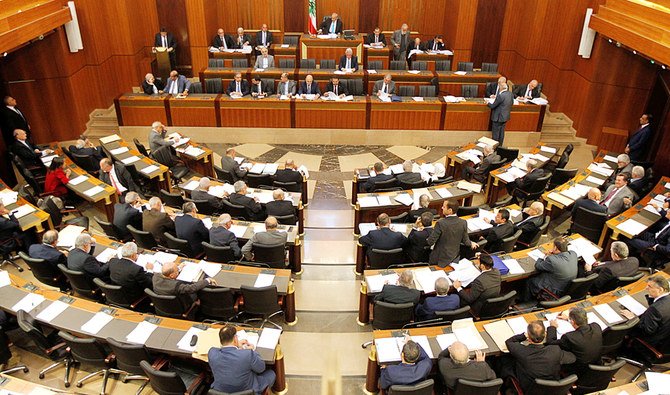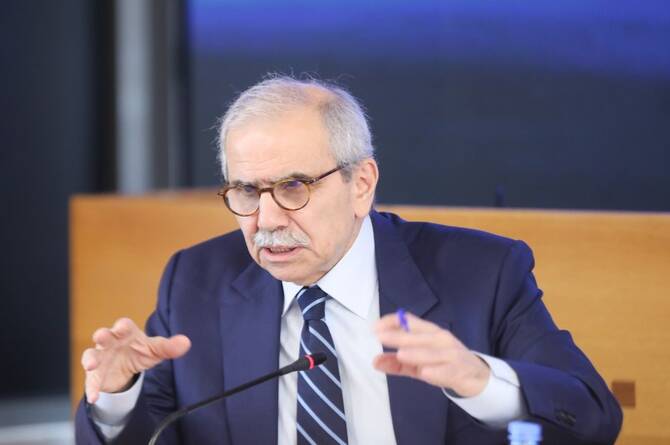Najia Houssari
BEIRUT: Lebanon’s political leaders on Sunday traded insults over the lack of progress in forming a new government, with no sign of a months-long stalemate coming to an end.
MP Gebran Bassil, who heads the Free Patriotic Movement (FPM) and is also the president’s son-in-law, began a fresh round of tit-for-tat barbs by accusing Prime Minister-designate Saad Hariri of being “bumptious and of violating the rights and dignity of others.”
“The president and the prime minister-designate are equal partners in forming the government, so they should both agree on everything including the form of the government, the number of ministries, distribution of portfolios, and the nominees. The government cannot be formed without the consent of the president,” said Bassil.
Hariri was tasked with forming a government last October, but has struggled to assemble a Cabinet.
The country’s sectarian power-sharing system means that Lebanon’s president must be a Maronite Christian and the prime minister must be a Sunni Muslim.
A new government is crucial in carrying out the reforms demanded by the international community in return for much-needed financial aid to help the country with its many crises.

But there is increasing rancour between President Michel Aoun and the FPM on one side and Hariri and his allies on the other about who should be in the new government and what portfolios they should have.
Bassil said there was consensus between Hariri, Hezbollah, and the Amal Movement on nominating a Shiite finance minister, adding: “When the prime minister-designate says that nominating the Sunni ministers is his exclusive right, then agrees that the Progressive Socialist Party nominates his minister (who is Druze) and waits for Hezbollah and Amal to nominate the Shiite ministers, then he would be accepting to subject the formation of the government to the principle of federalism of confessions and parties. If this is the case, then it should be applied to the case of the Christians, including the president of the republic and the Christian blocs that are willing to participate in the government.”
The lawmaker, despite setting conditions for the government’s formation, said the FPM did not want to take part in the Cabinet.
However he asked that the number of seats in the new government be raised to 20 to include an additional Christian minister, saying that he personally preferred that the government have 22 or even 24 ministers so that nobody had more than one portfolio.
“The FPM insists on the principles of justice and balance in the distribution of portfolios, and regarding the nominees we accept what Hezbollah would accept for itself.”
But his conditions were rejected by the Future Movement, which is led by Hariri, because they failed to make “any breach in the wall” that was causing the deadlock and stalemate.
Hariri gave Aoun a draft lineup of 18 ministers in December, but the president rejected his proposal.
The Future Movement added that Bassil lived in “La La Land” and was isolating the presidency from what had happened after 2019’s massive street protests.
It said: “No one proposed to Bassil to participate in the government, and his attempt to delude the Lebanese that there are pressures exerted on him to participate is a funny joke. Christians are aware that their rights are different from Bassil’s personal interests, and the Maronite
Patriarchate’s approach is the real guarantee of national unity.”
Maronite Patriarch Mar Bechara Boutros Al-Rai, who tried to heal the political elite’s differences through a personal intervention, gave another stark warning about the country’s situation.
“Hunger is ravaging our people, the state is disintegrating, political authorities are still obstructing the work of the state and its constitutional institutions including not forming a government, and obstructing justice through political interventions,” he said in his Sunday sermon.
He renewed his call for a UN-sponsored international conference on Lebanon to “revive and revitalize” the country, its identity, its positive neutrality, non-alignment, and role as a stabilizing factor in the region.






















